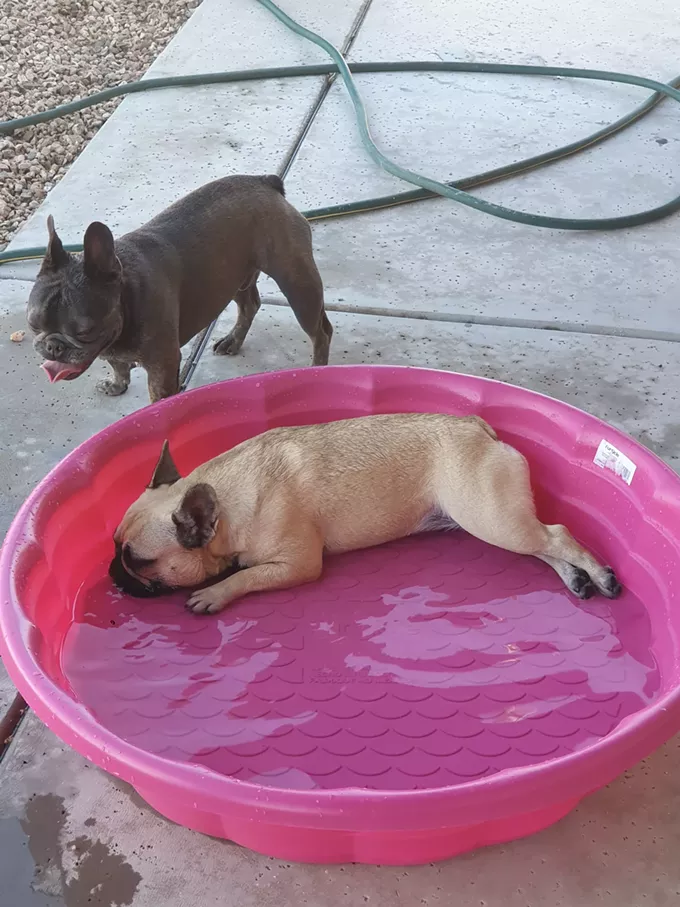Bird flu isn’t just affecting chickens and cows; it’s hitting pet cats.
An estimated 11.6 million households in California own 23.3 million cats. A growing number of these and an unknowable population of free-roaming “community cats” have been contracting avian flu, or H5N1.
According to the U.S. Department of Agriculture (USDA), 19 out of 39 — nearly half — of non-livestock mammals in California infected over the course of the ongoing H5N1 outbreak have been domestic cats. The majority of these cats, including a stray taken in by a Half Moon Bay family and confirmed with H5N1 infection last month, have died or been euthanized.
With kitten season around the corner, this news organization herded together cat experts for advice on how to reduce the spread of bird flu among felines and the species that interact with them.
Q: Can cats spread H5N1 to people?
A: A written statement by the California Department of Public Health (CDPH) said there have been no reports of humans contracting bird flu from cats. But animal-to-human transmission of the virus has already been taking place. California leads the country in human H5N1 infections, mostly from infected dairy cows. Dr. Jane E. Sykes, a specialist in infectious diseases in dogs and cats at the UC Davis School of Veterinary Medicine, said, “If the virus was to change in the future, as it’s shown it can do, then it could have more serious implications for humans in terms of pandemic development.”
Q: Why are cats so susceptible to the virus?
A: Susceptibility relates to the density and location of specific viral cell receptors in the respiratory tracts and other organ systems of cats, Sykes said, and underlying characteristics of their immune systems.
Q: What about bird flu risk in dogs, and dogs close to cats?
A: For now, very few domestic dogs have been reported with bird flu infections. Sykes said that this is probably because they are less susceptible to H5N1. This does not mean that they are immune.
Q: Should cat owners worry yet?
A: According to CDPH, “Human interaction with domestic cats is more intimate and ongoing than with livestock and poultry species.” This closeness exponentially increases the potential for cat-to-human contagion, and scientists say that testing capabilities and mRNA human vaccine research are not prepared for this.
Q: How are cats getting bird flu?
A: The majority of domesticated cats infected during this outbreak consumed raw milk or commercially marketed raw food products. The cause of infection in the Half Moon Bay stray was never determined, raising concern over feral (wild) and stray (lost, abandoned) community cats. These animals have a greater chance of exposure to other infected cats, wild birds or black rats, which joined the list of H5N1-affected animals in California at the beginning of this year.
Q: What is the incubation period for bird flu in cats?
A: Clinical signs usually appear in infected cats after a few days to a week, according to Sykes.
Q: Can cats spread bird flu while asymptomatic?
A: “There is no evidence that healthy cats can be infected with H5N1 and spread the virus without showing symptoms,” according to CDPH. But Sykes said that there are too many unknowns to be sure. “We don’t know how many cats are getting exposed and recovering without showing signs of illness. We still don’t have big studies available to understand what proportion of cats are, for example, fed raw food diets, and have antibodies to the virus,” she cautioned.
Q: Is there a vaccine for bird flu yet?
A: On Feb. 14, the Zoetis pharmaceutical company announced conditional approval from the USDA for a vaccine currently limited to poultry.
Q: How can I prevent my pet from getting bird flu?
A: Scientists, veterinarians, public health officials and animal lovers are all urging cat owners to keep their pet cats indoors at all times if possible. “It’s just much safer and healthier for them overall,” said Dr. Katherine Mills, medical director of the Friends of the Alameda Animal Shelter (FAAS). Mills also recommended not feeding cats raw milk or raw food, even if the products are commercially packaged, frozen or freeze-dried.
Q: How do I know if my cat has avian influenza?
A: They may present upper respiratory symptoms, like sneezing, coughing or congestion and difficulty breathing, or runny discharge from the eyes, nose and mouth, plus lethargy and loss of appetite. Mills said to look out for neurological signs, such as “just mentally not seeming alert, maybe stumbling when they’re walking.” Ultimately, only testing can confirm what is ailing an animal, so it is important to bring sick cats to the vet.
Q: Do I need to wear personal protective equipment (PPE) to handle a sick cat?
A: Mills said “it would never be wrong to wear gloves plus or minus a mask to get the cat in its carrier and get to the vet.”
Q: Up until now, poultry have been “culled” — killed — if even one bird has avian influenza. Will my pet cat or a stray I bring in be summarily euthanized in the interest of public health?
A: There is no protocol for the routine euthanizing of cats with H5N1 infections, but experts say that supportive care has rarely been able to help cats with rapidly progressing symptoms of bird flu.
Q: Are free-roaming community cats a public risk?
A: The statewide Integrated Pest Management Program (IPM) at the University of California Division of Agriculture and Natural Resources states that outdoor cats, comprising anywhere from 18-49% of the U.S. cat population, are already one of the100 worst invasive species worldwide because of their environmental impact and intractability.









